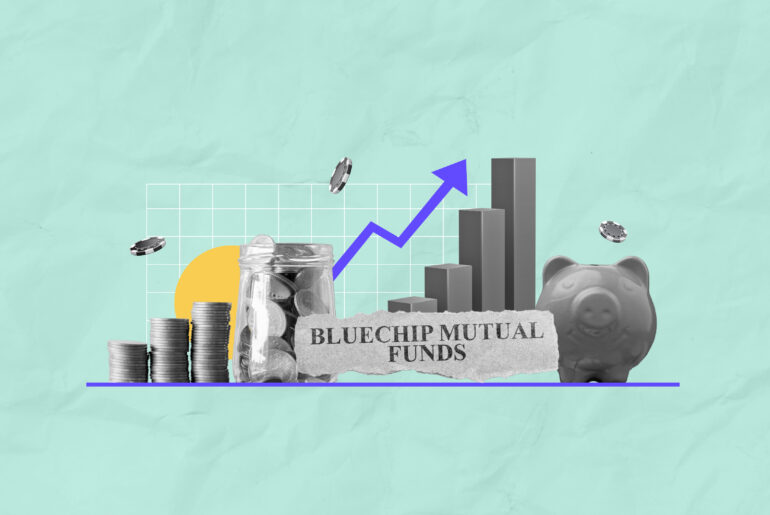Last Updated on May 13, 2025 by vanessa sequeira
When it comes to mutual funds, there are a number of different options available to investors looking for funds that will provide them with short term returns. In this article, let’s take a closer look at some of the best short-term funds available on the market, factors to consider before investing in them, advantages, how they work, taxation of short term mutual funds, and more.
Table of Contents
Best Short Term Mutual Funds Based on 5Y CAGR
| Name | AUM (Cr.) | CAGR 3Y (%) | Expense Ratio (%) | CAGR 5Y (%) |
| Bank of India Short Term Income Fund | 114.11 | 10.16 | 0.45 | 10.72 |
| Sundaram Short Duration Fund | 211.40 | 7.83 | 0.31 | 8.10 |
| UTI Short Duration Fund | 2,791.39 | 7.88 | 0.42 | 8.02 |
| Aditya Birla SL Short Term Fund | 8,342.87 | 8.16 | 0.37 | 7.85 |
| ICICI Pru Short Term Fund | 20,968.84 | 8.53 | 0.45 | 7.66 |
| Nippon India Short Term Fund | 6,691.70 | 8.04 | 0.37 | 7.26 |
| HDFC Short Term Debt Fund | 15,030.08 | 7.97 | 0.4 | 7.25 |
| Axis Short Duration Fund | 9,640.47 | 8.01 | 0.36 | 7.14 |
| Kotak Bond Short Term Fund | 17,821.39 | 7.99 | 0.38 | 6.94 |
| Baroda BNP Paribas Short Duration Fund | 228.30 | 8.04 | 0.4 | 6.89 |
Note: The data is from May 13th 2025 and sorted using Tickertape Mutual Fund Screener using the following parameters:
- Category > Debt > Short Duration Funds
- 5yr CAGR – Sorted from highest to lowest
Short Term Mutual Funds With Highest AUM
| Name | AUM (Cr.) | CAGR 3Y (%) | Expense Ratio (%) | CAGR 5Y (%) |
| ICICI Pru Short Term Fund | 20,968.84 | 8.53 | 0.45 | 7.66 |
| Kotak Bond Short Term Fund | 17,821.39 | 7.99 | 0.38 | 6.94 |
| HDFC Short Term Debt Fund | 15,030.08 | 7.97 | 0.4 | 7.25 |
| SBI Short Term Debt Fund | 14,429.29 | 7.71 | 0.4 | 6.58 |
| Bandhan Bond Fund – Short Term Plan | 9,815.71 | 7.99 | 0.33 | 6.71 |
| Axis Short Duration Fund | 9,640.47 | 8.01 | 0.36 | 7.14 |
| Aditya Birla SL Short Term Fund | 8,342.87 | 8.16 | 0.37 | 7.85 |
| Nippon India Short Term Fund | 6,691.70 | 8.04 | 0.37 | 7.26 |
| HSBC Short Duration Fund | 3,880.75 | 7.53 | 0.27 | 6.32 |
| DSP Short Term Fund | 3,192.36 | 7.64 | 0.34 | 6.54 |
Note: The data is from May 13th 2025 and sorted using Tickertape Mutual Fund Screener using the following parameters:
- Category > Debt > Short Duration Funds
- AUM – Sorted from highest to lowest
Short Term Mutual Funds With Minimum SIP
| Name | AUM (Cr.) | CAGR 3Y (%) | Expense Ratio (%) | Minimum SIP (%) |
| Mirae Asset Short Duration Fund | 401.28 | 7.86 | 0.29 | 99 |
| Bandhan Bond Fund – Short Term Plan | 9,815.71 | 7.99 | 0.33 | 100 |
| HDFC Short Term Debt Fund | 15,030.08 | 7.97 | 0.4 | 100 |
| Kotak Bond Short Term Fund | 17,821.39 | 7.99 | 0.38 | 100 |
| JM Short Duration Fund | 121.03 | 0.00 | 0.37 | 100 |
| Tata ST Bond Fund | 3,094.97 | 7.79 | 0.37 | 500 |
| UTI Short Duration Fund | 2,791.39 | 7.88 | 0.42 | 500 |
| HSBC Short Duration Fund | 3,880.75 | 7.53 | 0.27 | 500 |
| Union Short Duration Fund | 721.97 | 0.00 | 0.45 | 500 |
| SBI Short Term Debt Fund | 14,429.29 | 7.71 | 0.4 | 1000 |
Note: The data is from May 13th, 2025 2024 and sorted using Tickertape Mutual Fund Screener using the following parameters:
- Category > Debt > Short Duration Funds
- Minimum SIP – Sorted from lowest to highest
What Are Short Term Mutual Funds?
Short term mutual funds are a type of debt mutual fund with a limited maturity period. These funds invest in low-risk, high-quality securities, especially those with a proven record of repaying their loans on time and having enough cash flows from their business to justify the borrowings. The short term mutual funds are considered an alternative to a savings bank account and fixed deposits, as their returns are slightly better and have high liquidity.
Within short term mutual funds, there are a few types. For instance, if you are looking to invest for less than 91 days, you can opt for liquid funds. For a tenure of 3-6 months, you can opt for ultra-short mutual funds. For 6-12 months, opt for low-duration funds, and for an investment horizon of 1-3 years, opt for short-duration funds.
How Do Short Duration Funds Work?
Short-term mutual funds work by pooling money from multiple investors and investing it in a portfolio of short-term debt securities such as government securities, corporate bonds, and money market instruments. The fund manager is responsible for selecting the best securities according to the fund objective. They also manage the fund portfolio to generate good returns while minimising risks. As an investor, you can buy and sell units of the mutual fund at its current NAV.
Short-term mutual funds typically have a maturity period of 1 to 3 years, which means that the securities held in the portfolio mature within this timeframe. This makes short-term mutual funds less volatile than long-term mutual funds that invest in equities and a lower-risk investment option for investors seeking to park their funds for a short period of time.
Features of Short Term Mutual Funds
1. Short Investment Horizon: Short-term investment funds are designed for individuals with a limited investment window. Whether you’re saving for a near-term goal or awaiting better long-term opportunities, these funds provide an efficient parking avenue for surplus capital.
2. Liquidity: One of the standout features of short-term mutual funds for liquidity is their easy redemption process. Most funds allow investors to withdraw money within a couple of working days, making them ideal for managing temporary cash needs or emergency funds.
3. Lower Risk Profile: Compared to equity funds, low-risk short-term mutual funds typically invest in high-quality debt instruments like treasury bills, commercial papers, and certificates of deposit. This makes them relatively less volatile and suitable for conservative investors.
4. Potential for Better Returns: While safety is a primary concern, many investors choose high-return short-term mutual funds that aim to deliver better returns than traditional fixed deposits or savings accounts, though with slightly higher risk.
5. Ideal for Tactical Allocations: Investing in short-term funds for growth can be a smart strategy during uncertain market conditions. Investors often use these funds to park money temporarily while waiting for better entry points in equities or other long-term instruments.
Factors to Consider Before Investing in the Best Short Term Mutual Funds
Though short mutual funds look like a good investment option, you must consider the below-mentioned factors before investing in them.
- Investment Objective: Depending on your investment objective and plan, you must choose whether to invest in the best short term mutual funds. Hence, define your goal, set a plan, and then decide on high-yield short-term funds accordingly.
- Investment Horizon: If your goals are for three years or less, you can explore short-term debt funds as options for short term investment funds.
- Past Performance of the Fund: Past performance can be a good indicator in analysing the present and future returns of a fund. However, they do not guarantee accurate results. For example, while reviewing the best short-term mutual funds India, do not rely completely on past performance.
- Tax Implications: Short-term investment funds are taxed as per the investor’s slab rate, which can significantly impact returns.
- Risk Profile: The risk profile of a mutual fund is another important factor to consider before investing. For best short-term mutual funds for 1 year, evaluate liquidity risk, credit risk, and interest rate risk.
Advantages of Short Term Mutual Funds
- The best short-term funds often deliver better returns than fixed deposits while keeping risk under control.
- These funds are more tax-efficient than fixed deposits and traditional savings accounts if held for three or more years.
- Top-performing short-term mutual funds are highly liquid, allowing investors to buy or sell units anytime without incurring high costs or penalties.
Who Should Explore Best Short-Term Funds 2025?
- Investors with an investment horizon of at least 1 to 3 years
- Passive investors or investors seeking regular income.
- Investors looking for alternative short-term savings instruments than savings accounts and Fixed Deposits.
- First-time investors in Debt funds
- Risk-averse investors
- Investors seeking high liquidity and tax efficiency
Taxation on Short Term Mutual Funds
The Union Budget 2024 has introduced significant changes to the taxation of debt mutual funds. Here is a detailed breakdown of the new tax rules:
| Capital Gains Tax | Description |
| Short-Term Capital Gains (STCG) | If you sell your debt fund units within three years (36 months), the tax will be as per your income tax slab. |
| Long-Term Capital Gains (LTCG) | For debt funds held for over three years (36 months), the tax rate is now a flat 12.5% without indexation benefits. |
How To Choose the Best Short Term Mutual Funds?
- Use Tickertape Mutual Fund Screener: To identify the top short-term mutual funds, Tickertape Mutual Fund Screener is your partner.
- Define Your Investment Parameters: Tickertape Mutual Fund Screener offers you over 50 filters to get the best mutual funds from 100s available in the market. You can filter the funds based on the payout structure – growth, dividend – IDCW (Income Distribution Capital Withdrawal), and bonus. Additionally, you can also filter funds based on the scheme info (AMC, lock-in period, exit load, fund manager, NAV, and SIP Investment), returns, risk, portfolio composition, and ratios.
- Shortlist and Analyse Funds: You can add those funds to your watchlist or, alternatively, create a Universe for short term funds. Additionally, you can perform individual analysis of the fund. This has all the important information you need about a mutual fund, like the fund manager, its peers, portfolio, opinions and fund reviews.
- Get Started on Tickertape: Research, analyse, invest, and review your portfolio from our platform without even requiring you to switch tabs in between. Connect your portfolio and utilise our portfolio analysis tools to get a better understanding.
Before investing, ensure you understand mutual funds and their types and then proceed to analyse the fundamentals of a fund. Not just that, but keep your investment goals and risk appetite in mind.
Conclusion
Short-term investment strategies are low-risk, high-quality funds with a limited maturity period. They are best suited for risk-averse investors, passive investors, people seeking regular income and investors with an investment horizon of at least 1 year or 1 to 3 year. To get the list of short-term sip mutual funds best suited for you, use Tickertape Mutual Fund Screener. With over 50 filters, custom filters, the custom universe, individual analysis, and more, Tickertape makes your research, analysis, and investment journey easy. Sign up today!
FAQs
What is a short fund, and how can it benefit business people?
A short fund is a type of mutual fund designed for short-term investment horizons, typically ranging from a few months to a year. These funds focus on providing stability and moderate returns while minimising risk. For business people seeking liquidity and minimal risk, the best suited fund to the business people is often a short fund that aligns with their cash flow needs and goals.
What are the best SIP options for a 6-month investment horizon?
If you’re looking for the best SIP for 6 months, you may want to consider funds that prioritise low risk and steady returns, such as debt or ultra-short-term funds. Tools like the Tickertape Mutual Fund Screener can help evaluate performance and ratings of options like a 6 month mutual fund.
Can I invest in mutual funds for 6 months?
Yes, one can invest in mutual funds for six months. For this time horizon, you can consider ultra short term funds and liquid funds.
Where do short term funds invest?
Short-term mutual funds primarily invest in fixed-income securities like treasury bills, commercial papers, certificates of deposit, and short-duration corporate bonds. These instruments typically have maturities ranging from a few months to 3 years, aiming to offer stable returns with lower interest rate risk.
- How To Withdraw Mutual Funds? - Jun 6, 2025
- Top Maternity Insurance With Low Waiting Periods - Jun 5, 2025
- ROE vs ROCE – What are the Differences? - Jun 5, 2025





